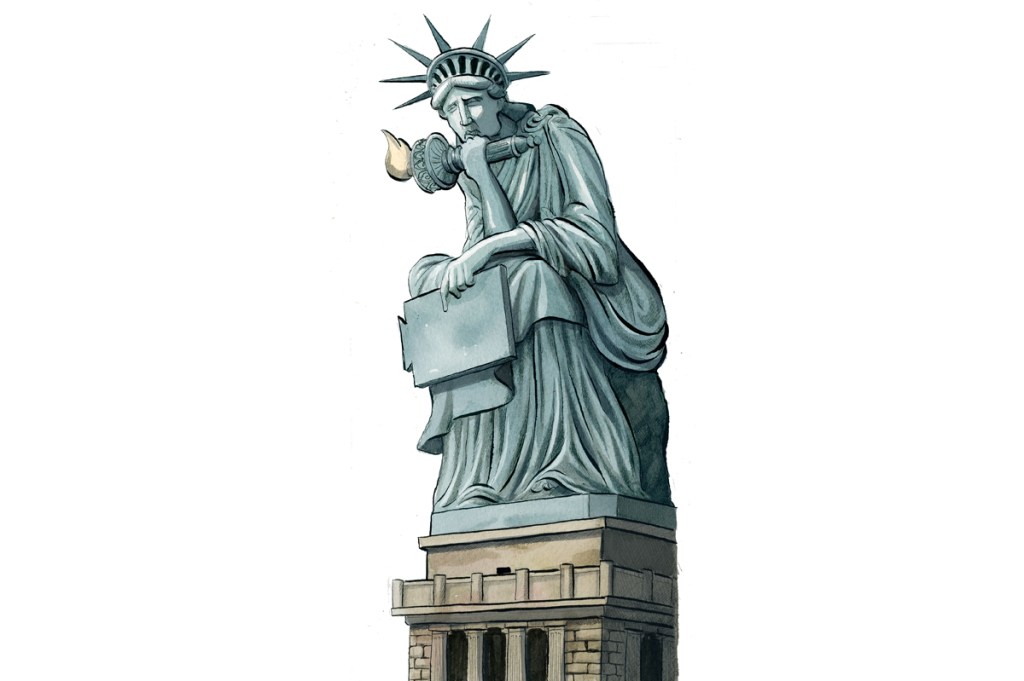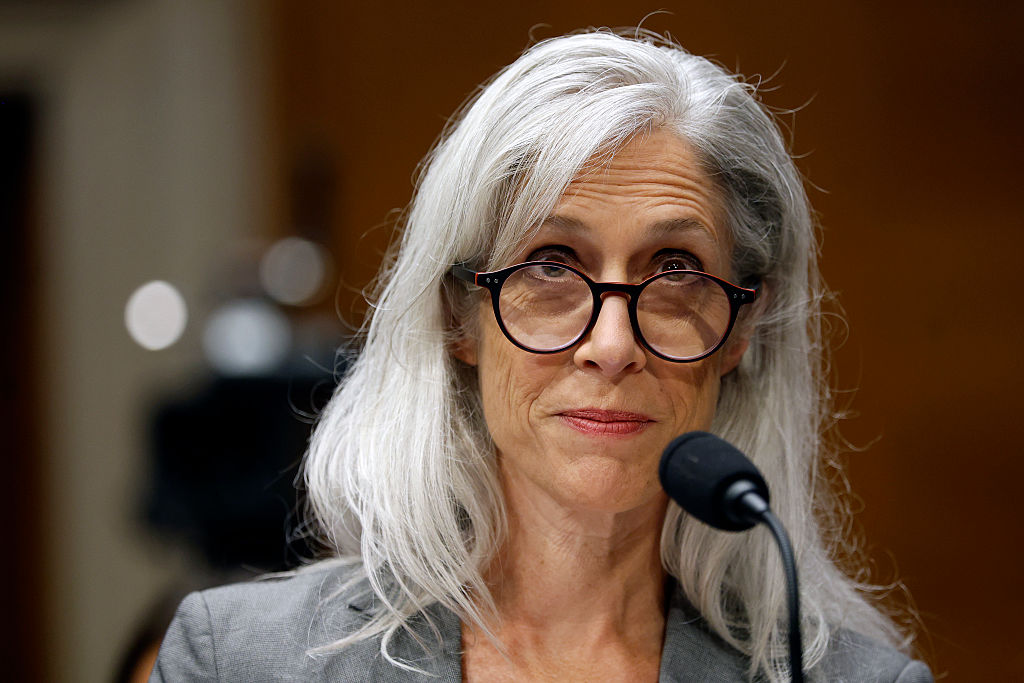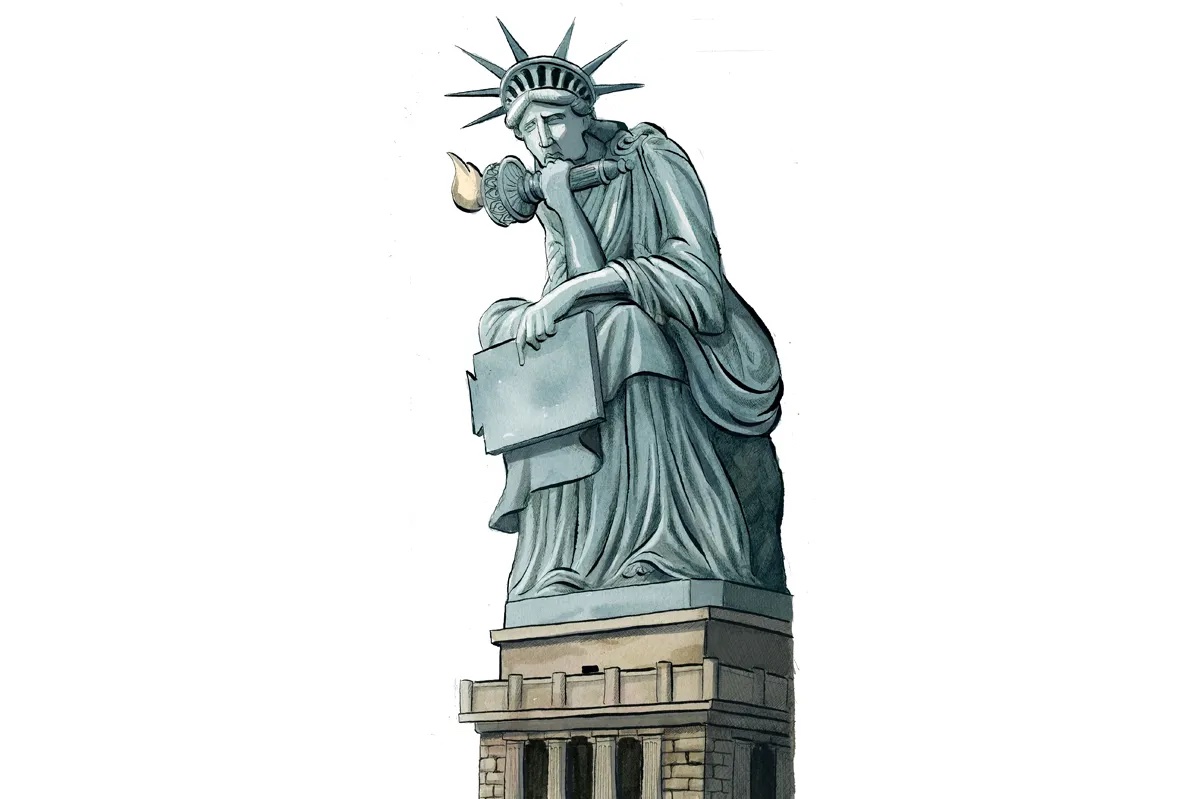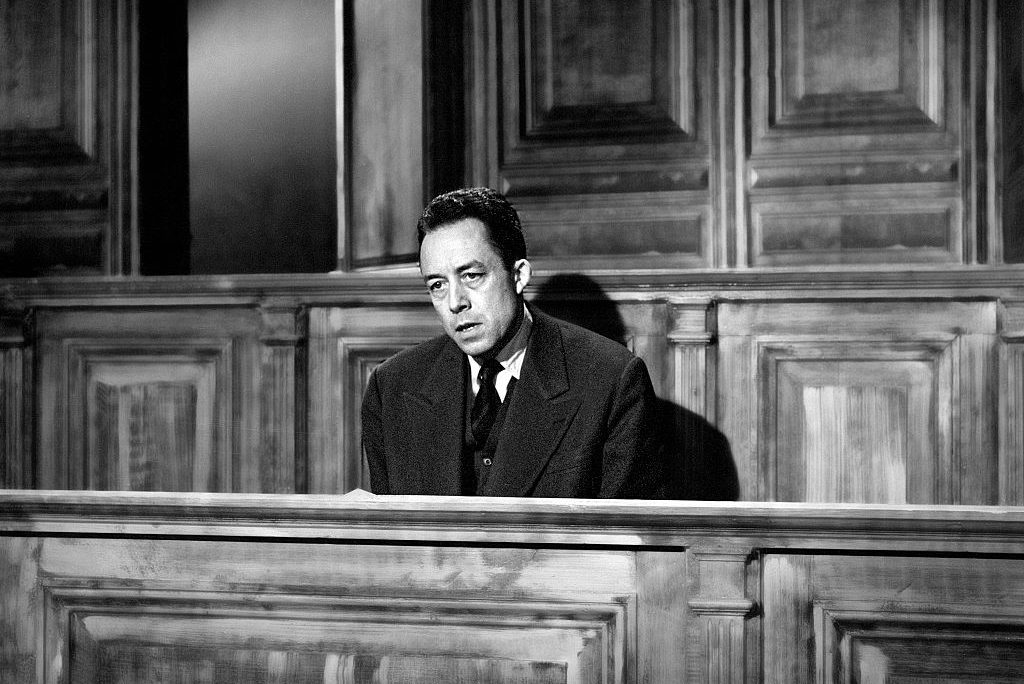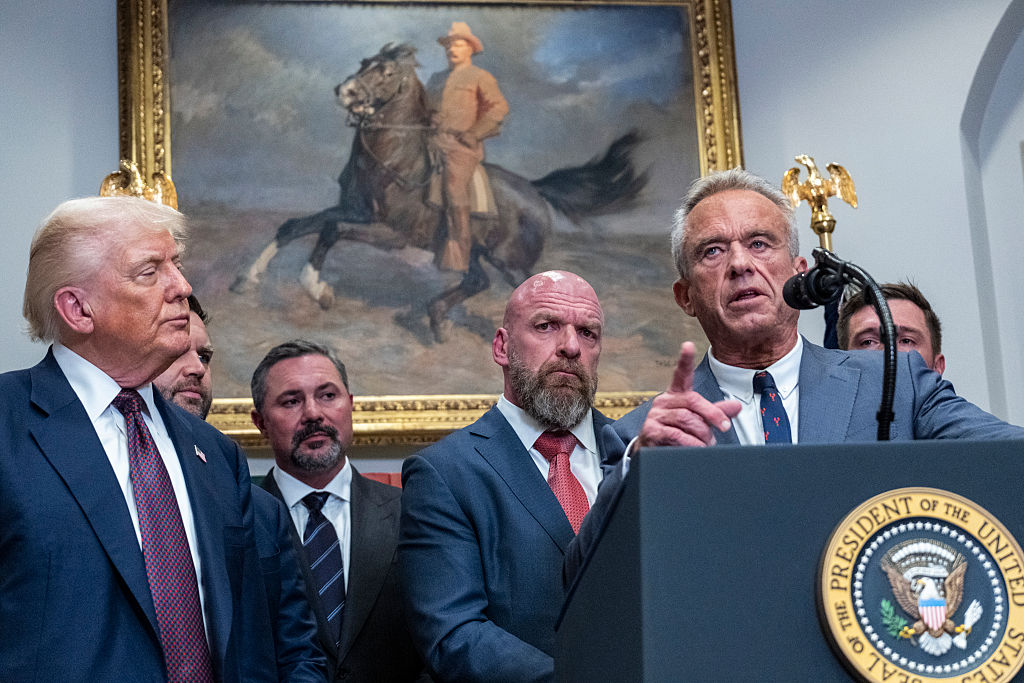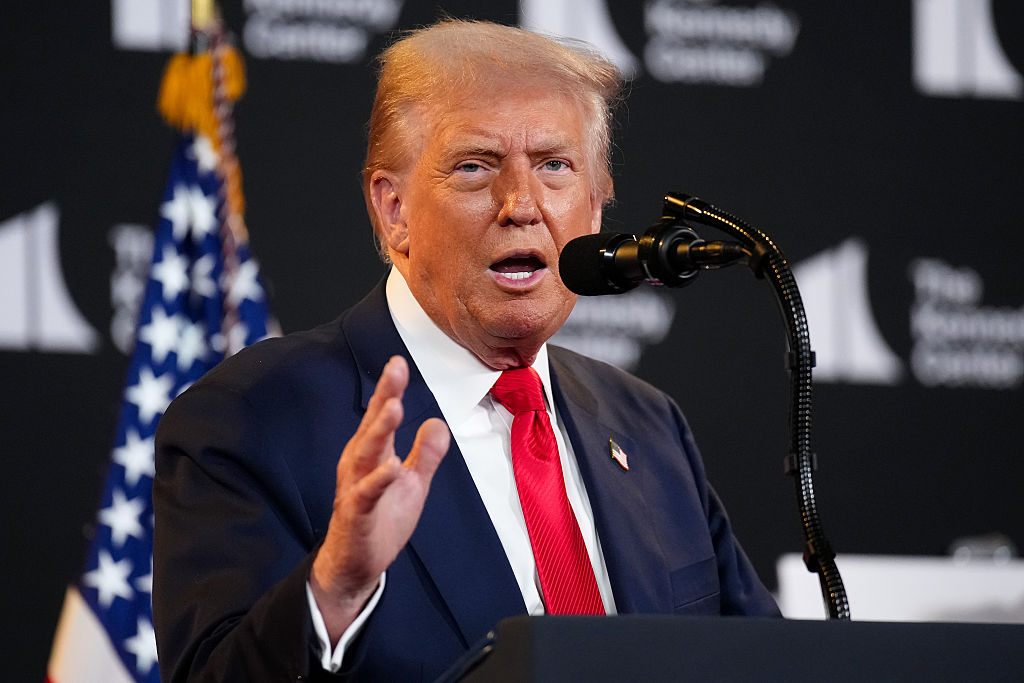Can we still say that we live in a liberal age? We live, now, in the age of an epidemic. Calling for a political order that can effectively respond to such a disease is starting to sound a lot like calling for a post-liberal order.
In the pages of the Atlantic, Adrian Vermeule has made something of the same point: the order that we have been living under is clearly unequipped to deal with crises of the nature of this epidemic. The common libertarian conservative position that any government action on this is a violation of the rights of the individual, shows the fundamental insanity of libertarianism. My father used to quote Voltaire to me: ‘My right to punch you in the nose ends where your nose begins.’ But to claim an absolute ‘right’ to assemble, in a reality where airborne transmission exists, is as nonsensical as claiming a ‘right’ to a fistfight. Liberalism is at odds with biological reality.
It’s all the more important therefore to get quite a firm hold on what we might mean — and what we ought not to mean — by post-liberalism.
Post-liberalism is not a very helpful word. In itself, all it seems to mean is After or Not Liberalism. It is much more accurate to speak of post-liberalisms, of which there are many, some of them dreadful; get on Twitter and they hover around you like seagulls trying to steal your pizza. The post-liberalism I am discussing here is something specific: a retrieval of pre-liberal Christian political philosophy, but without LARPing and nostaglia.
Let’s start, though, by defining liberalism itself. This won’t take long; feel free to trot briskly past this bit if you’ve read Patrick Deneen or are (may God help you) a member of Weird Catholic Twitter.
Liberalism is a philosophy which sees humans primarily as rights-bearing individuals with no given purpose, whose lives are formed as they seek to realize their own chosen purposes. They are bound by no unchosen obligations, and they are free to dispose of their property, including their bodies, as they choose. Indeed, this liberty — to do precisely as you will with your body and your money, as long as you don’t violate another person’s consent — is held to be the sacred center of human experience.
The political vision of liberalism matches this: everyone has a guarantee of no moral obligation to an unchosen human authority over him; any government must, to be just, be consented to; the social contract means that all just authority is actually our alienated authority over ourselves, which we gave up when we exited the State of Nature. In its crudest form, this means that if you didn’t vote for whoever is making the laws, you’re the victim of an injustice.
Post-liberalism, meanwhile, starts with the observation that the State of Nature is make believe: we don’t all begin life as property-owning Englishmen with no political ties to each other, and also we don’t begin it as solitary creatures, although babies, having no money, are technically poor. We didn’t ask to be born, we did nothing to earn our parents’ care. But here we all are.
Among the pond-weed of Belisarius-avatar Twitter, we find a version of post-liberalism that seems to rather have got hold of the wrong end of the stick. ‘Consent is not the only metric of justice, and we don’t have absolute property rights in our bodies, you say?’ they ask, brightening up. ‘Excellent. That must mean that any form of government that violates consent is Post-liberal and Based; look at this picture of Vladimir Putin on a horse; also probably there’s no such thing as marital rape; just something I’ve been thinking about for no particular reason lately, don’t worry about it.’ Or: ‘Governments ought to consider the good of their own people, and aim at their flourishing, I hear? That means that we can go to war, right?…at least a trade war, right? Also close our borders to refugees.’
To these accounts I say: that ain’t it, chief.
The point of post-liberalism is simply the good, in a Christian sense. The purpose of earthly government is to bring those governed to their natural end: to be virtuous men and women with justice in their souls, who participate in the common good of the city; it also has the purpose of directing us to our final supernatural end, according to its own methods, in a humble way and without stepping on the toes of the church.
Government is just, therefore, if it’s aimed at the common good of the polity, the good that we enjoy by being citizens together of a well-ruled commonwealth, and that we can’t enjoy alone. It doesn’t matter enormously what form that government takes. That can vary. Nothing wrong with universal suffrage, if that’s the way things are done! But, you know, not a big deal if your leaders are chosen another way.
Laws, meanwhile, are just if they accurately reflect the natural law, and if they aim at shaping us, teaching us, towards our temporal and eternal ends. It is obviously absurd to say that you can’t legislate morality: the case to legislate anything other than morality is the difficult one to make, and all law, if it is not unjust, is founded on the moral law.
Decisions about international relations, about immigration, and about taking in refugees, ought to aim at, well, the good. The good of the polity, yes, but also — obviously — the good of the community of all nations. Yes, of course that exists. No, it’s not a cheesy post-World War Two retcon perpetrated by Eleanor Roosevelt. The Christian post-liberal understanding of political obligation has to recognize that each ruler will be answerable not only for how he treats his own people (though certainly that) but how he promotes, from the particular position that he occupies, the good of this variegated human community of communities.
***
Get three months’ free access to The Spectator USA website —
then just $3.99/month. Subscribe here
***
Not all of those communities will be nation-states, of course. Most of them will not be. The common good that all of those communities share, and all the people who make them up, too, is God himself, and the universal shalom of the kingdom of heaven to which we are all called. And there’s nothing in the least wrong with, in a kind of a modest and tentative way that is very careful not to get bloodily utopian, aiming at embodying that cosmopolitan universal community here and now. And if that makes you itch and sounds like globalist bleeding-heart propaganda, that is definitely your problem and not mine. Immanentize the eschaton or go home.
Now let’s talk about freedom, and rights.
Your freedom of will, any political freedom you have, is a good in the way that hand strength is a good: it is meant to be used for the purpose of loving actions.
Rights, meanwhile, get a bad rap in post-liberal circles. But there’s nothing wrong with the word, properly understood. What your right is, is what someone else has a duty to give you: children have the right to their parents’ care and love; parents have a right to their children’s obedience when they (the parents) are not being abusive or asking their children to do wrong; rulers have a right to obedience when their laws do not violate the natural law; the ruled have the right to laws that are in line with the natural law, and to rulers who are promoting their real good as opposed to enriching themselves or pandering to the base appetites of the ruled.
You have the right to do what you ought: to love your neighbor as yourself, to love God, to do all those things which conduce towards living a good human life: to work, to marry, to play, to garden, to publish magazines. A government that prevents people from doing these things is a tyranny.
You don’t have even the hint of a right to do wrong to yourself or others. And what you have is not just the right to pursue eudaemonia, true wellbeing and happiness, but a duty to: to be the particular human you are well, carrying out your particular role with grace.
As a friend recently pointed out, our political life together is described by nothing so well as by 1 Corinthians 16: we are all members of each other; though we play various roles in society, none of us can dispense with the others. This is a vision of society that’s been viciously abused, of course. But any just politics is going to have to keep in mind the other caution in that passage: that God is the God who lifts up the lowly, who protects those who are in what we now have learned to call ‘high-risk categories’, and any magistrate who seeks to imitate him ought to do the same.



